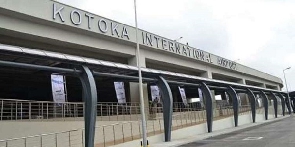Sekondi (W/R), Aug. 16, GNA - The Western Regional Security Committee (REGSEC) on Thursday met with representatives of some mining companies and other key players in the industry to deliberate on growing security concerns in mining areas.
The meeting, which was held behind closed-doors, also discussed operations of alternative livelihood programmes for communities in the catchments of the mines and the effects of eviction exercises conducted earlier to flush out illegal miners from the concessions. Representatives of AngloGold Ashanti, Nduaprem mines, Adamus Resources Limited, Goldfields Tarkwa Mines, Golden Star Resources Limited, and Goldfields Darmang Mines, as well as personnel from the various security agencies attended the meeting.
In his opening remarks before the meeting went into a closed session, Mr Anthony Evans Amoah, Western Regional Minister and chairman of the REGSEC, emphasised the role of the Regional Co-ordinating Council (RCC) to ensure peace and security for the people, as well as to provide the enabling environment for the growth of the private sector. The RCC, he said, considers security and good relationship with the mining companies as "twin factors, which are likely to promote the interests of both investors and the people".
Mr Amoah noted with concern that recent eviction exercises embarked upon to flush out illegal miners from concessions of some mining companies, with their attendant huge cost in human and material resources, yielded no dividends. The evictions were carried out at mining concessions at Prestea, Tarkwa, Bogoso, Mpohor and Benso.
The Regional Minister said there had been appeals for similar exercises, but noted that evictions cannot go on forever "due to limited resources and their attendant social ramifications." He said most of the alternative livelihood programmes evolved for the displaced persons took too long to benefit the people, noting that the affected communities had lived on the concessions and earned their livelihood for many centuries; therefore to displace them without assuring them of a regular and sustainable sources of livelihood was most unfortunate.
Regional News of Thursday, 16 August 2007
Source: GNA












